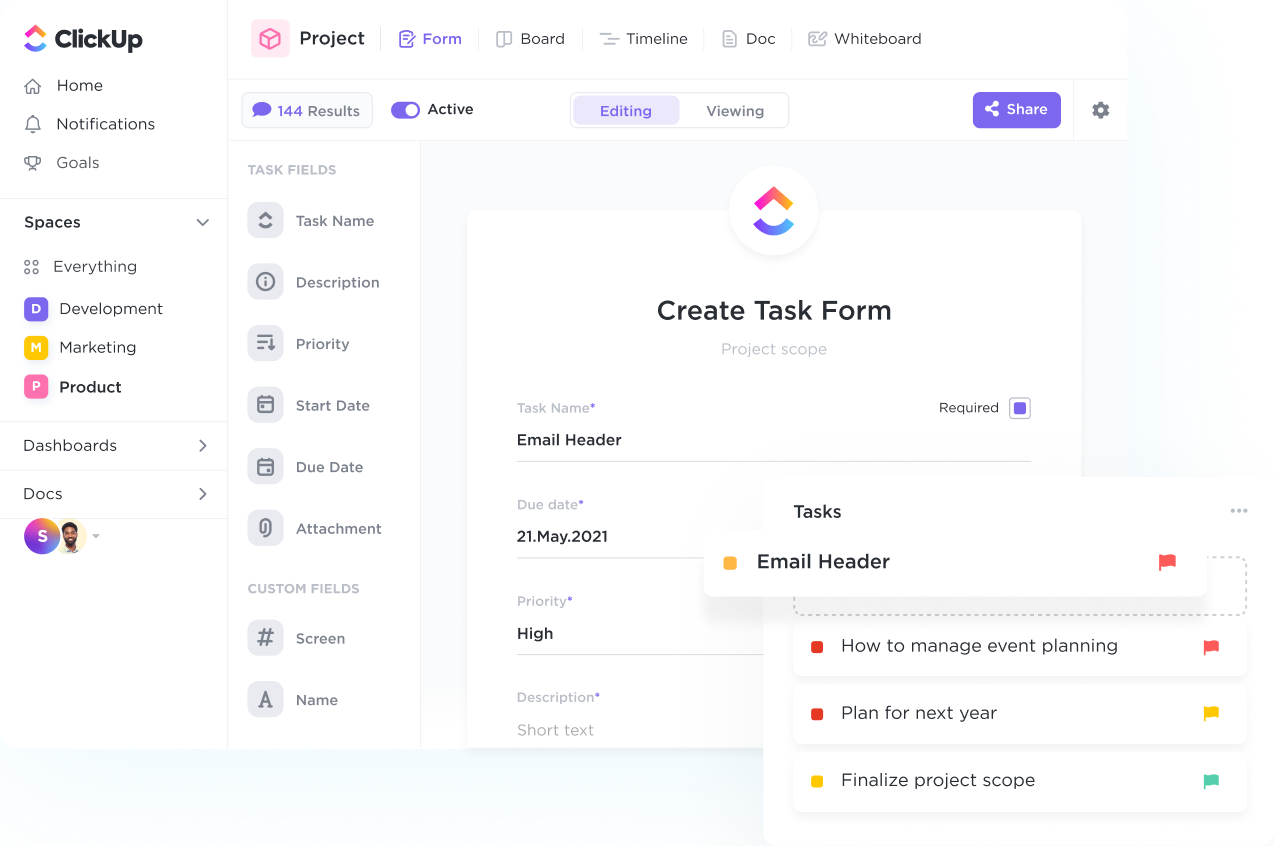Onboard customers and collect info in a snap.
Streamline your intake process, organize response data, and automatically create tasks with custom branded Forms powered by conditional logic.

Revolutionize your sociological research with a customized CRM system powered by ClickUp. Streamline your data organization, enhance collaboration among team members, and effortlessly track project progress all in one place. Elevate your sociological studies with ClickUp's versatile features designed to meet the specific needs of sociologists. Sign up today to experience seamless project management like never before.
Free forever.
No credit card.
Trusted by the world’s leading businesses
Streamline your intake process, organize response data, and automatically create tasks with custom branded Forms powered by conditional logic.

Manage everything from sales pipelines, customer engagement, and orders with ClickUp's 10+ highly flexible views. Easily track and manage your accounts on a List, Kanban Board, Table view, and more.

Sociologists can benefit from CRMs by using them to track and qualify leads for research studies or collaborations. They can capture potential participants from various sources, score them based on relevance to their research objectives, and nurture these leads through the recruitment process.
CRMs can help sociologists analyze and track how individuals interact with their research projects or social programs. By studying behavior patterns and preferences, sociologists can gain valuable insights into the effectiveness of their initiatives and make informed decisions to enhance their impact.
Sociologists can use CRMs to segment individuals or groups based on demographics, behaviors, or participation in specific research activities. This segmentation can help tailor interventions, studies, or programs to different target audiences, ensuring more personalized and effective outcomes.
By leveraging CRMs, sociologists can log and track every interaction with participants, stakeholders, or collaborators. This comprehensive view of communication and engagement helps sociologists understand the full scope of their relationships, leading to more meaningful and productive interactions.
Sociologists can streamline their research processes and administrative tasks through workflow automation in CRMs. By automating routine activities such as participant scheduling, data collection reminders, or survey distribution, sociologists can focus more on their research objectives and maximize efficiency.
CRMs provide sociologists with collaboration tools that enable seamless teamwork and information sharing among research team members. By sharing documents, timelines, and tasks within the CRM, sociologists can enhance communication, coordination, and productivity in their research projects.
CRM software can assist sociologists by organizing and managing research data, tracking interactions with study participants, and providing valuable insights into social trends and patterns for more informed analysis.
Sociologists should look for CRM software that allows for effective management of client relationships, tracks social interactions and behaviors, enables segmentation based on social data, and provides robust reporting and analytics capabilities for sociological research purposes.
Yes, CRM software can be customized to meet the specific needs and requirements of sociologists in their research projects, allowing for tailored data collection, analysis, and reporting functionalities to support their research objectives effectively.